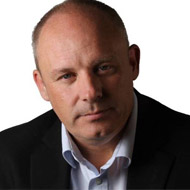
The mindset you have can greatly affect your intelligence
Robin Launder provided perhaps the most amusing and entertaining lecture at the VPMA/SPVS Conference, while at the same time giving his audience a real insight into open and fixed mindsets.
He started by saying that the mindset you have can greatly affect how intelligent you are and that a fixed mindset puts up barriers to learning and progressing.
Those who have a fixed mindset will tend to avoid challenges, give up when obstacles are put in their way, feel that extra effort is pointless, see feedback as an attack on their abilities and the success of others as a threat. All these mindsets form a barrier to learning and change.
People who have an open mindset embrace challenges, persist when obstacles are put in their way, and see effort as, as Robin put it, a 'path to mastery'. They see feedback as a learning opportunity and the success of others as inspiration for they themselves to achieve more.
The brain can adapt and grow with new experiences and training, but this does not happen without practising the things that we need to improve upon. Robin gave examples of those who we consider geniuses such as Mozart and Michelangelo, but pointed out that they did not achieve this without hours of practice every day, starting very young in life and often having the encouragement of a parent.
His argument was that geniuses are made, not born and that being a genius is the result of hard work and fortunate circumstances. He explained that physical exercise results in increased strength while mental exercise results in increased intelligence.
Fixed mindsets come from environmental influences and circumstances. All babies will be born with a growth mindset, but will develop into individuals some of whom will continue to have growth mindsets while others will develop fixed mindsets.
So how do you turn a fixed mindset into a growth mindset? People with fixed mindsets need to want to change and understand the theory behind the growth mindset, be prepared to stretch themselves and move out of their comfort zone, embrace failure and learn from it. Robin considered that failure is the best teacher as long as we learn from it, saying that some of the most successful people have learnt from their failures and used them to succeed.
To change from a fixed to a growth mindset, the individual needs to stop having a 'can't do' attitude, avoiding difficulties and always giving up and start to embrace difficulties, be persistent and actively use feedback seeing it as positive and not just as criticism.
Robin illustrated how the advantages of growth mindsets meant that individuals would have resilience, be able to bounce back and be far less likely to suffer from depression.
Clearly, veterinary practice requires people with growth mindsets in order to move forward and put new plans and ideas into place. A growth mindset within practice will allow practices to, grow and prosper, so when employing new people ensuring they have a growth mindset is a must.



 The Veterinary Medicines Directorate (VMD) is inviting applications from veterinary students to attend a one-week extramural studies (EMS) placement in July 2026.
The Veterinary Medicines Directorate (VMD) is inviting applications from veterinary students to attend a one-week extramural studies (EMS) placement in July 2026.